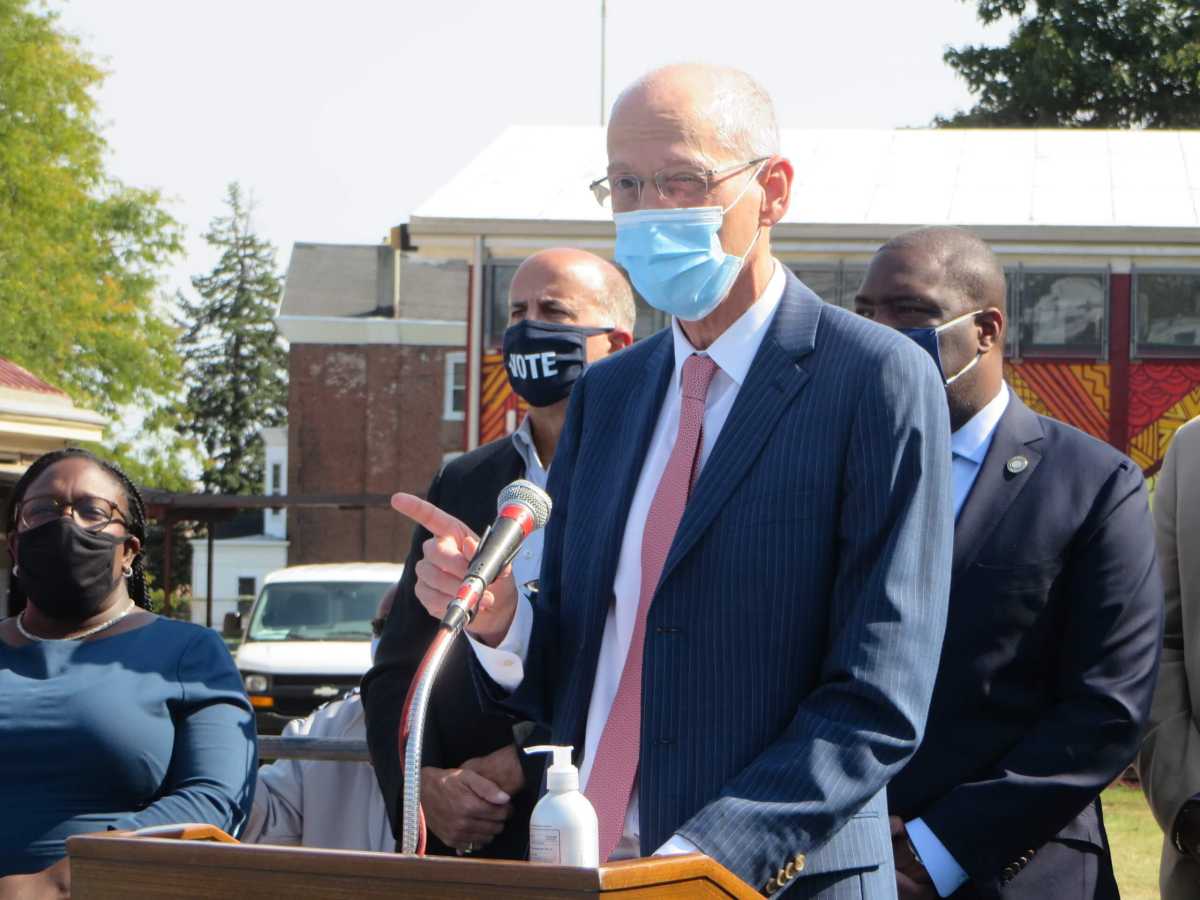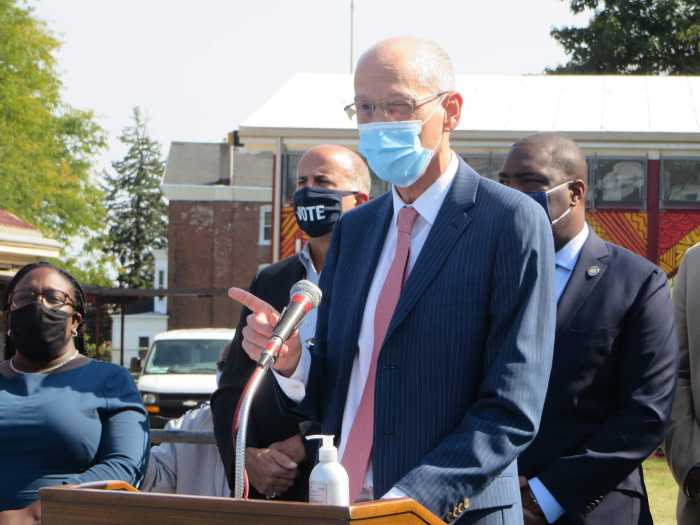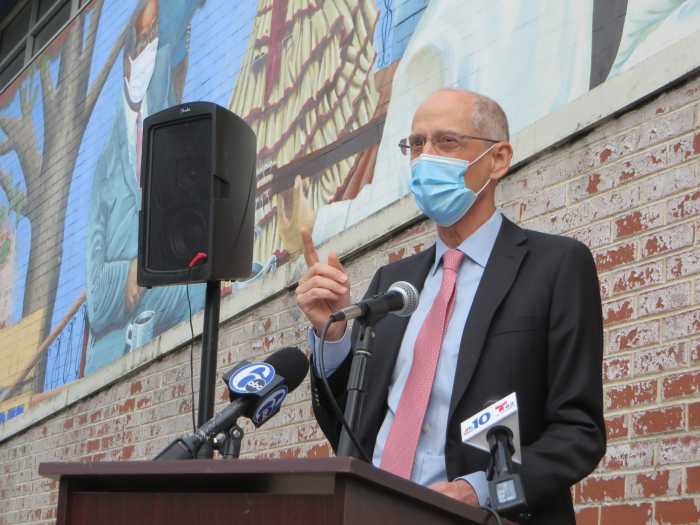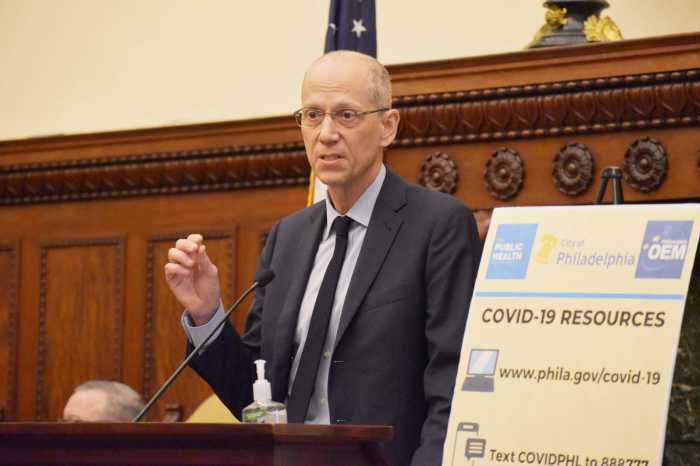Philadelphia leaders, in a final plea Tuesday, urged people to stay home for Thanksgiving and celebrate only with their immediate family.
Dr. Thomas Farley, the city’s health commissioner, said a get-together over a big meal is “a very high risk situation,” as the region contends with one of the strongest waves since the pandemic began eight months ago.
“You don’t want to spread COVID to your elderly grandmother or that cousin of yours that may have a chronic medical condition that might make him severely ill if he got the infection,” Farley said during a press briefing.
Demand for coronavirus testing has jumped, as some people seek a negative result before travelling to spend time with friends and family.
Testing sites in Philadelphia have reached capacity and have begun prioritizing those who are experiencing symptoms or have been exposed to a person with the virus.
A negative result may be false reassurance, anyway, as the COVID-19’s incubation period means a person could catch the infection, test negative and spread the disease a day or two later, Farley said.
Since Thursday, the number of virus-related hospitalizations in Philadelphia has jumped by 130, to 672 patients. The city’s hospitals survived a peak of 1,000 in the spring.
“We can handle this now, but I’m still concerned that the hospitals may come under strain if we don’t get this particular epidemic wave under control,” Farley said.
Officials reported 1,077 new confirmed cases Tuesday in the city and 6,669 across Pennsylvania. Seven additional virus-related deaths were documented in Philadelphia, while the state recorded 81.
Last week, the city averaged 764 new cases a day, down from the prior week’s 888, though Farley cautioned the number could rise as delayed results come into the health department.
The positive test rate, viewed as a key metric, especially as more and more people are tested, remains steady at 11.8%, after several weeks of steady increases.
“That leveling trend could just be a pause before we see another increase (or it) could be the beginning of a reversal,” Farley said. “No way of telling right now.”
More infections are popping up in nursing home residents, who have accounted for nearly half of the city’s virus death toll.
Over the past two weeks, assisted-living facilities in Philadelphia have experienced 136 cases, and 42 people have been transferred to a special city-run unit for residents who live in nursing homes that don’t have the space for isolation rooms.
Officials have not revealed the location of that unit, which opened last month on an unused floor of an operating nursing home.
Farley said they hope the facility will mitigate cases in nursing homes and keep patients who need additional support out of the hospital, where beds are needed for people who are more seriously ill.
There are no plans to open a field hospital similar to what was set up at Temple University’s Liacouras Center in the spring, he added.
Meanwhile, vaccines could arrive in Philadelphia in mid-December, Farley said, with the U.S. Food and Drug Administration currently reviewing a product developed by Pfizer.
“We are, in the big picture, close to the end of this,” Farley said. “I’m very optimistic of where we’re going to be in 2021.”
Healthcare workers who are routinely exposed to the virus, such as hospital nurses and testing site employees, would be first in line if the shot is approved, he said.
Pfizer’s vaccine, along with another produced by Moderna, have proven to be 95% effective, according to the companies.






























